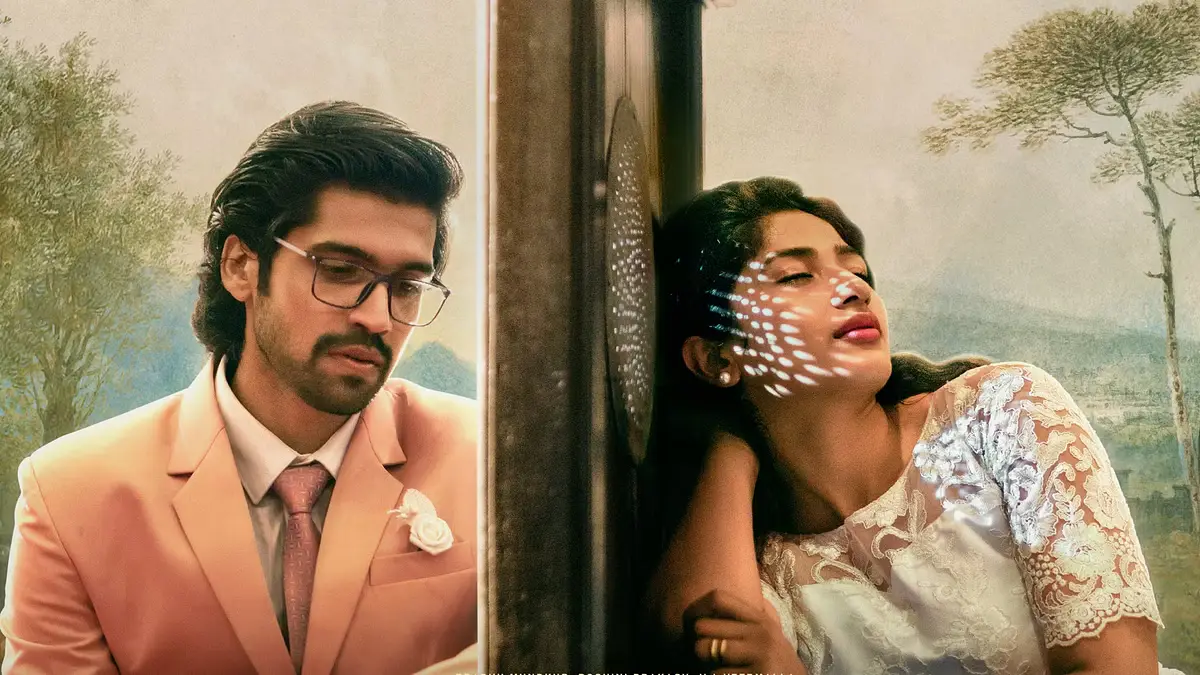The most interesting aspect of the film is its pace. The director is in no hurry. He savours every moment, and makes us feel the maximum impact. The rest of this review may contain spoilers…
There’s a lovely image in an early scene of Murphy, where an old radio box resembles a human face. The two knobs on either side of the frequency bar look like eyes, and below, there’s a bar that resembles a mouth. This image occurs in a dimly lit repair shop, so this may be completely my imagination – but this is a story in which a radio set does function like a messenger. It connects two people in Goa, across two different timelines. Some parts of the plot reminded me of the 2000 sci-fi thriller Frequency, but Murphy – directed by BSP Varma – isn’t a thriller. It is a gently told tale of relationships: between father and son, between grandfather and grandson, between boyfriend and girlfriend, between a woman and the teacher she has a crush on, and between the two people connected across time.
Prabhu Mundkur has the air of a star and the commitment of an actor, and he is perfect as David Murphy. His father is dead, and he lives with his lovably eccentric grandfather (HG Dattatreya). The two women in the story are Jessie and Janani, played by Ila Veermalla and Roshini Prakash. One of the strengths of Murphy is its cast. Not a single performance is out of sync. Even if the part is as generic as that of a girlfriend, and even if this role does not give the actor much to do, the performer’s immersion is total. David has never really gotten over the death of his father, and the universe smiles on him when he goes back in time through the radio set. Some of us may be reminded of the Back to the Future movies. What if we could change what happened? What if we could play God and make people do things whose outcome affects the present day?

This is not a spoiler. Both the Hollywood movies I mentioned – Frequency and Back to the Future – have a race-against-time aspect. Murphy, on the other hand, does not want to race against time. The most interesting aspect about the film is its pace. The director is in no hurry. He savours every moment, and makes us feel the maximum impact. At one point, both David and the person at the other end of the radio set (in that other timeline) realise something, and the emotion is allowed to linger. Prabhu Mundkur is wonderful in these emotional passages, and because of the stay on these sequences, his feelings become ours. There is no effort to jolt the audience and give them instant highs. Whatever happens is a result of a slow accumulation of plot points. It’s like experiencing a leisurely radio-era drama in the quick-scrolling age of smartphones.
This is both the plus and the minus of Murphy. The plus is the feeling of not being relentlessly manipulated. We are allowed to luxuriate in this beautifully shot film. (Adarsha R is the cinematographer.) The minus is that this is essentially a two-character story, and there’s a little too much poetry and “poetic” storytelling: that’s when you begin to wish they’d hurry things up a little. Murphy doesn’t dig very deep: I wished they had addressed the impact of David’s decisions on the people around him. But it is an easy watch, a classy watch, and if you are a sucker for closure, it’s the kind of drama you rarely get these days. I liked that David got what he wanted, even if only in a very indirect way. Murphy is a bittersweet movie that makes you do your own kind of time-travel. It makes you wonder what you’d do if you had a magical radio set and the universe decided to smile on you.


